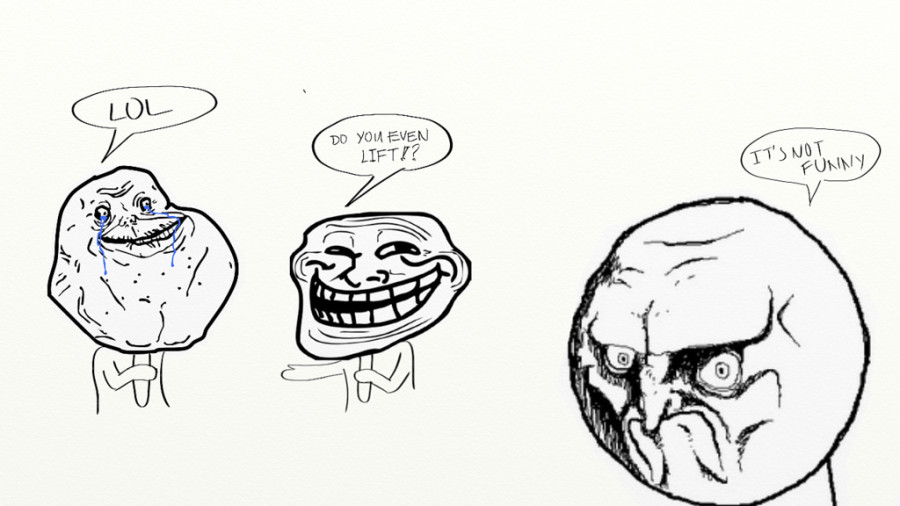The prevalence of memes hurts our humor and our thinking
May 14, 2014
Imagine that you’re at a party or any other large gathering of people and someone gets everyone’s attention because they have the best idea.
They start to speak, then have to stop themselves to get the giggles out, and they try again to announce their hilarious idea: let’s make a Harlem Shake video.
If your imagination, and social circle, is anything like mine, you’re imagining an awkward, drawn out silence. No one wants to make a Harlem Shake video anymore. No one even wants to watch a Harlem Shake video.
That’s what happens when a meme has run its course, and memes are more and more often setting track records, going from hilarious to awkward-if-mentioned in less time than ever before.
In the case of the Harlem Shake it exploded in popularity, showing up in 100 news headlines in March 2013 and the plummeting down to nothingness in just over a month. This is by no means unique to the Harlem Shake.
KnowYourMemes, a catalog that features popular memes complete with similar graphs of their popularity and most of them, especially the newer ones, come with popularity graphs that look like a single heartbeat on an EKG machine.
Memes like Arrow to the Knee and Surprised Patrick are hilarious to most people for one heartbeat before they flatline. But that by no means makes them uncommon.
What the popularity graphs measure is the interest in seeing these memes, not the rate at which they’re still being produced. A Youtube search for Harlem Shake filtered by upload date brought up several pages of results just in the last 24 hours, almost all of them with no views.
Even the least funny, least relevant memes like Arrow to the Knee are still being submitted to image boards in droves.
Looking at the massive amount of recent submissions of a long-unfunny meme as they keep coming, joke after joke that was unfunny before it was even said, reminded me the scene in the Disney “Hercules” movie where the dead would fall like rain into Hell.
The problem with memes isn’t primarily that they’re annoying or get played out quickly: more than anything, the problem with memes is that they make unfunny people think they’re funny.
While the memes that become popular are most often thought up by clever, funny people, the function of a meme itself makes it so that the average person can, without much effort, use the meme to get a laugh, or at least a polite smile and half-chuckle.
How often do you hear people actually talk in memes? I’d venture to say that people only use phrases like, “Dat [insert anything here];” “Do U even [insert anything here];” and “One does not simply [you get the idea]” in conversation as often as they do because of they like the small fragment of time where they feel funny or related to.
The problem is that this kind of interaction deincentivizes most people from at least trying to be witty and it scripts our interactions so that we have the same conversations over and over. With that being said, it’s not even in the interest of those just trying to get a quick laugh here and there to rely on memes to help them.
The popularity of memes rises and falls so quickly now that by the time most people are aware of any given meme, it’s already run its course and has stopped getting laughs.
There’s few things less funny than someone enthusiastically telling a bad joke and waiting for laughter that never comes.
Cliche is the mortal enemy of wit, of humor and of creativity. And that’s all memes really are: cliches.
It used to be the standard part of the curriculum for writers to be taught to avoid cliches, to never write your ideas using someone else’s words, but that it seems like that lesson is slowly being forgotten.
Only the most showy, inkhorn publications now even bother to try to avoid cliched metaphors and figures of speech.
Most media is aimed towards young people, and as long as young people speak, joke and think in cliches, then everything aimed towards them will follow suit.
I don’t look forward to a media where looking a year back to anything would feel as embarrassed for what I’m seeing as being asked to Harlem Shake.







































































